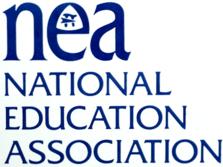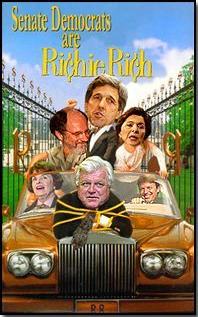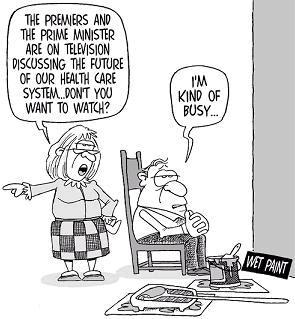|
Kick Assiest Blog
Friday, 28 April 2006
Swimmer Kennedy Against Cape Cod Wind Farm
Mood:
 chatty
Topic: Lib Loser Stories chatty
Topic: Lib Loser Stories
Senator Edward M. Kennedy backs a bill that would effectively halt the proposed construction in Nantucket Sound of 130 wind turbines similar to this one in Hull. The bill would give Governor Mitt Romney the power to veto the Cape Wind plan. \/

 Kennedy faces fight on Cape Wind Kennedy faces fight on Cape Wind
Key lawmakers oppose his bid to block project
WASHINGTON -- As record oil prices turn attention to the need for renewable fuels, momentum is building in Congress to buck Senator Edward M. Kennedy's bid to block the proposed Cape Cod wind energy project, potentially reviving efforts to construct the sprawling windmill farm in Nantucket Sound.
The chairman and the top Democrat on the Senate Energy and Natural Resources committee said yesterday that when the bill Kennedy backs that would effectively halt the  wind farm comes up for a vote in the Senate, they will object on procedural grounds. They say they'll argue that a renewable energy project shouldn't be lumped in with a bill governing the Coast Guard.
Meanwhile, a group of rank-and-file House members, worried about the political ramifications of rejecting alternative energy sources while motorists pay $3 a gallon at the gas station, have persuaded House leaders to sidetrack the entire bill for at least several weeks, even though it was slated for action this week. The delay could give supporters of the wind farm time to make their case to members of Congress.
"Are we going to be for developing alternative energy or not?" said Representative Charles Bass, a New Hampshire Republican who helped persuade House leaders to table the bill until at least mid-May. "The longer you delay it, the longer there is for people to examine the issue, and to determine what's going on here."
The efforts to move the wind farm  forward occur amid growing attention to Kennedy's role in the secret, behind-the-scenes maneuvering to stop it. Republican Ted Stevens of Alaska, the senator who inserted the wind-farm provision into the Coast Guard bill, has acknowledged discussing the matter privately with the Massachusetts Democrat.
Environmental groups have launched an aggressive advertising and lobbying campaign to persuade Democrats to abandon Kennedy and back a promising source of renewable energy. If the wind farm becomes a reality, advocates say, it could provide three-fourths of the Cape and Islands' energy needs and could set an example for the nation.
 The maneuver to stop the wind farm "is clearly a backroom deal, and they're going to get called publicly on it," said John Passacantando, executive director of Greenpeace USA. "The Democrats are going to kill the first big offshore wind farm in the United States because of their relationship with Ted Kennedy."
The 130-turbine, 24-square-mile cluster of windmills would be about 8 miles from Kennedy's home in Hyannis Port, and he has long opposed it. The Coast Guard bill would give Governor Mitt Romney, another wind farm opponent, the power to veto it, even if the project clears all other hurdles.
 Kennedy rejected suggestions that he doesn't like the wind farm because it would be near his Cape home, and said the project probably wouldn't be visible from the Kennedy compound. He said he's against the project because it would create a range of environmental and navigational problems and would hurt tourism, one of the area's key industries.
The Cape Wind developers, he said, want to erect a sprawling, for-profit field of giant windmills on public, state-owned territory. Kennedy noted that the project was the beneficiary of more lenient regulations included in last year's energy bill, which could have put it on a faster track to construction; therefore, a special deal was warranted to stop it.
Ultimately, Kennedy said, Massachusetts and its governor should get to decide yes or no on the site for the farm, Kennedy said.
"We had an opportunity to right a wrong," he said of the provision in the Coast Guard bill. "The people who ought to be irate ought to be the citizens of Massachusetts. I don't shrink from my advocacy for them. I welcome it. I'm going to continue to make sure that ... a wealthy developer is not going to ride roughshod over the state's interests."
 Kennedy said the effort to block the wind farm started in the House, where Transportation Committee Chairman Don Young, another Alaska Republican, originally inserted it in the House version of the Coast Guard bill. Young and Stevens maintain that states should have a say in energy projects off their coastlines.
"I just believe it's a state's right," Stevens said yesterday. "If that were in Puget Sound, don't you think people in Washington would want to say something about it? If it's off our coast, we'd want to know."
Stevens said he "conferred" with Kennedy about adding a provision to the bill that would allow the state to veto the Cape Cod project. He said Kennedy agreed with that idea, an account that Kennedy confirmed.

 But the project's supporters don't like the manner in which the provision was included in the bill, an argument that appears to be catching on with some lawmakers. The final language was hashed out in secret by a small handful of lawmakers -- a group that included Young and Stevens. But the project's supporters don't like the manner in which the provision was included in the bill, an argument that appears to be catching on with some lawmakers. The final language was hashed out in secret by a small handful of lawmakers -- a group that included Young and Stevens.
"They've lost in the court of public opinion, so they're taking this to the back room because it's the only way they can get it done," said Sue Reid, a staff attorney for the Boston-based Conservation Law Foundation, which backs the wind farm. "There's growing outrage against this provision," said Reid, who was in Washington yesterday to lobby Congress.
 Senator Jeff Bingaman of New Mexico, the ranking Democrat on the Senate energy committee, said it's important to encourage development of renewable energy sources like wind power.
Bingaman and Chairman Pete V. Domenici, Republican of New Mexico, will try to round up enough senators to strip the provision from the Coast Guard bill. That would send the bill back to the conference committee -- with the Senate on record against interference with the Cape Wind project.
The Kennedy-backed provision "would short-circuit the process and kill the project, which I think would be a mistake," Bingaman said.
"If there are problems with the project, they ought to come out and be discussed. But they shouldn't be dealt with this way."
Bass said the Cape Wind project  has been treated differently in Congress because powerful lawmakers and special interest lobbyists vacation on Cape Cod and treasure the ocean views.
"It's odd that the people who are against it are the people who have [scenic] views," Bass said. "I'm sorry about that, but the project ought to rise or fall on its merits."
Kennedy dismissed such talk as "their response to any kind of raising of questions" about the project's problems. "It's just an easy response to an argument that has merit."
Boston Globe ~ Rick Klein ** Kennedy faces fight on Cape Wind
Posted by yaahoo_2006iest
at 5:52 PM EDT
Updated: Friday, 28 April 2006 5:59 PM EDT
Dead Air America and Al Franken To Lose New York Flagship, WLIB-AM on Aug. 31
Mood:
 d'oh
Topic: Lib Loser Stories d'oh
Topic: Lib Loser Stories
 Air America To Lose New York Flagship Air America To Lose New York Flagship
Air America Radio will lose its New York flagship station, WLIB-AM, on Aug. 31. While the left-leaning radio network's original lease for the Inner City station ran out March 31, AAR managed to get an extension which only lasts until Aug. 31, according to an informed source.
Through an agreement with ICBC, WLIB will be operated as a joint venture and be programmed by P1, a company run by former Clear Channel and Jacor Communications executive Randy Michaels. Michaels is expected to program a progressive talk format, but replace AAR's network programming with more local programming. A likely addition to the new lineup: Ed Schultz, the left-of-center talker syndicated by P1.
"To be clear, Air America will not go silent on the New York City airwaves. We do not, however, comment on hypothetical speculation," said an AAR spokesperson  .
Billboard Radio Monitor ~ Mediaweek - Katy Bachman **
Air America To Lose New York Flagship
Related: 'Progressive' Media Stalls: 'Air America' in Audience Plunge NYC,
'Daily KOS' Book Sells Only 3,600 Copies
Also at: The Radio Equalizer ~ Brian Maloney ** Drudge: AAR Meltdown --
On Temporary NYC Station, Leaked Ratings Show Huge Drop
Posted by yaahoo_2006iest
at 4:32 PM EDT
Updated: Friday, 28 April 2006 4:42 PM EDT
Suddenly, Negative Politics Isn't So Bad; Shades of the Clinton era stories on benefits of lying
Mood:
 chatty
Now Playing: LIBTARD MEDIA BULLSHIT ALERT
Topic: Lib Loser Stories chatty
Now Playing: LIBTARD MEDIA BULLSHIT ALERT
Topic: Lib Loser Stories
 Suddenly, Negative Politics Isn't So Bad Suddenly, Negative Politics Isn't So Bad
 ‡
BEGIN TRANSCRIPT
RUSH: Do you remember back during the nineties when Bill Clinton couldn't tell the truth to save his life? He was lying big, small, white,  black, whatever; telling lies all over the place. We got stories eventually from the mainstream media about how lying is good. It will spare people hurt feelings, and it actually is a very compassionate thing to lie at the right time, to the right person, about the right things. Well! From the University of Chicago press, we have a book here. This is a book review in the Washington Post.
"A Positive Take on Negative Advertising -- If you are one of those Americans who cringe every time they see a negative political ad on television, John G. Geer is not your cup of tea. Geer, a Vanderbilt University political scientist, has set out to challenge the widely held belief that attack ads and negative campaigns are destroying democracy. Quite the opposite, he argues in his provocative new book: Negativity is good for you and for the political system."
"Negative ads, he says, are far more likely to be about substance rather than personal attacks and are more likely to be supported by documentation than are positive appeals." Now, I know people say there's an axiom, a cliche' that "don't expect negative advertising to go away any time soon because it works," and there's no question that it works. But I'm curious about the timing here, right in the midst of the '06 elections.
I don't know Mr. Geer, but I find it interesting that when we are in the midst of perhaps the most mean-spirited, baseless, personal, negative day-in-and-day-out presentation of the news by the drive-by media and the Democratic Party, that we now got a book saying that's pretty good for us.
That's good for us, so we can benefit from this. It's very substantive. Now, I know he's talking about ads, political ads here. But there's nothing substantive to the Democrats' attacks. That's the point. It is all personal, and it's all based on a foundation of falsehoods, untruths, prevarications and -- for those of you in Rio Linda -- lies. Yet this is good for us, has to potential to be good for us. That's awfully similar to the kind of things we heard about lying being good for us in the nineties.
END TRANSCRIPT
Read the Background Material... (Washington Post: A Positive Take on Negative Advertising)
Rush Limbaugh.com ** Suddenly, Negative Politics Isn't So Bad
Posted by yaahoo_2006iest
at 4:00 PM EDT
Updated: Friday, 28 April 2006 4:05 PM EDT
Thursday, 27 April 2006
CBS News To Be '700 Club' of Gay News
Mood:
 silly
Now Playing: LIBTARD MEDIA BULLSHIT ALERT
Topic: Lib Loser Stories silly
Now Playing: LIBTARD MEDIA BULLSHIT ALERT
Topic: Lib Loser Stories
 CBS News To Be '700 Club' of Gay News CBS News To Be '700 Club' of Gay News
"We don't want to be the '700 Club' of gay news," says Jason Bellini, anchor of "CBS News on Logo," the MTV-owned cable network that targets gay, lesbian, bisexual and transgender viewers. "The audience wants us to be credible. There are plenty of other outlets out there doing advocacy coverage."
"CBS News on Logo" made its debut last summer, producing four minutes of news each day for Logo. Courtland Passant, executive producer the CBS News-produced show that runs more than 30 times each day on the network, says the content of the segment centers on gay issues. He notes that recent story topics include a gay-themed children's book, arrests in a St. Maarten gay-bashing case involving CBS News employees, and the discharge of a lesbian Air Force nurse.
 Passant, however, insists that he and his staff of five "take great pains to make sure we don't appear to be pandering to the audience. We are not a mouthpiece for the gay community."
"We get our notions of balance and objectivity from voices within our community," he adds. On an issue like gay adoption, for example, Passant says, that means they don't have to put a conservative on air to balance the issue, since almost all of those opposed to gay adoption are outside the gay community.
In addition to "CBS News on Logo," the network produces programming for a number of stations, including A&E, MtvU, Discovery Channel, the Food Network and TV Land. Some such programming, like that on MtvU, is branded with the CBS News name, but much of it is not.
 According to Passant, Logo, which partnered with CBS News while both were under the Viacom umbrella, pushed for the CBS News brand name, and CBS News, he says, was "supportive of that."
Bellini, who came to Logo from CNN says the gay news content does not indicate that CBS has taken up gay causes. "I don't think that CBS has chosen sides in the culture war by doing this," he said, adding that all of the networks support the National Lesbian and Gay Journalists Association. "I think they all recognize gay people as part of a diverse newsroom."
Bellini says he isn't the only person taking a risk in embracing Logo. "If we don't do our jobs right, we could be damaging the CBS News brand," he says. "We want to make sure that it's as good as anything else CBS News would put out there."
 He says however, that does not mean creating a carbon copy of the kind of coverage of gay issues one would find in traditional media. He recalled an interview with Rosie O'Donnell about her "Gay Family Cruise" in which he interrupted O'Donnell to remind her she was on Logo. "I told her we don't need to hear her making the case for gay people -- you don't need to do PR here," he says. "She loosened up a little after that."
Adds Passant, who came to "CBS News on Logo" from Newspath, the 24-hour affiliate news service of CBS News, the broadcast doesn't inject any editorializing into the final product. "We're just covering stories most news organizations aren't covering," he says. "We take great pains to write the story as straight, if you will, as possible."
"People are so excited that there is a high-quality gay newscast," adds Bellini. "Our very existence gives validity to the idea of gay news."

News Max.com ~ Carl Limbacher ** CBS News To Be '700 Club' of Gay News
Posted by yaahoo_2006iest
at 3:46 AM EDT
Teacher unions get cut on annuities
Mood:
 d'oh
Topic: Lib Loser Stories d'oh
Topic: Lib Loser Stories
 Full Image: Full Image: Crystal Mendez's union-backed retirement plan earned 3 percent a year while her boyfriend's 401(k) was getting 15 percent. >>>>>
Teacher unions get cut on annuities
Companies pay them to steer members into mediocre investments
Last of three parts.
Second-grade teacher Crystal Mendez was in the staff lunchroom at 42nd Street Elementary in Los Angeles when a broker introduced herself and started talking up a retirement plan.
Mendez thought she could trust the woman because her company had been endorsed by her teachers union. She agreed to put $400 a month into a retirement account, assuming her money would be invested in stocks. Just 22, she figured she had plenty of time to ride out any dips in the market.
 Nearly two years later, when her boyfriend started bragging about the returns he was earning on his 401(k), Mendez took a closer look at her own account. "He was earning 15 percent a year and I was earning 3 percent," she recalled. "I thought, 'There's something wrong here.'"
Mendez's money was languishing in a fixed-rate annuity, an investment ill-suited to someone in her early 20s. Worse, she would have to pay a steep penalty to bail out.
Public-school teachers across the country are in similar predicaments.
And many have their unions to thank for it.

 Some of the nation's largest teachers unions have joined forces with investment companies to steer their members into retirement plans that frequently have high expenses and mediocre returns. Some of the nation's largest teachers unions have joined forces with investment companies to steer their members into retirement plans that frequently have high expenses and mediocre returns.
In what might seem an unlikely partnership, the unions endorse investment providers, even specific products, and the companies reciprocate with financial support. They sponsor union conferences, advertise in union publications or make direct payments to union treasuries.
The investment firms more than recoup their money through sales of annuities and other high-fee products to teachers for their 403(b) plans - personal retirement accounts similar to 401(k)s.
 New York State United Teachers, for instance, receives $3 million a year from ING Group for encouraging its 525,000 members to invest in an annuity sold by the Dutch insurance giant.
The National Education Association, the largest teachers union in the country with 2.7 million members, collected nearly $50 million in royalties in 2004 on the sale of annuities, life insurance and other financial products it endorses.
Other deals
Teachers unions across the country - including statewide teacher associations in Pennsylvania, Michigan and Oregon - have struck their own endorsement deals. Unions in Dallas, Miami, Phoenix, Seattle and Atlanta, among others, refer members to products approved by the NEA and typically receive a share of endorsement revenue in return.
 Many teachers say they presume an endorsement means their union has used its clout to get the best price, as unions do on products ranging from eyeglasses to automobiles. But when it comes to retirement accounts, union backing is often a sign that the product will cost more, not less.
Buyers of an NEA-endorsed annuity sold by Security Benefit Life Insurance Co. pay annual fees totaling at least 1.73 percent of their savings. That is about 10 times as much as they would pay with 403(b) plans available from Vanguard Group, T. Rowe Price and other low-cost mutual fund providers.
The costliest option in the NEA-endorsed plan charges 4.85 percent a year. That means an investor would have to earn a return of nearly 5 percent just to break even.
 Union leaders defend the endorsement deals and the prevalence of high-fee annuities. They say that teachers get valuable advice from brokers and financial advisers in return for the fees, and that the companies' contributions to union coffers help pay employee salaries and other union expenses.
Yet no one disputes that this money ultimately comes out of teachers' pockets.
"The nature of the marketplace is such that you have these little under-the-table payments, or whatever you want to call them, and a good-old-boy network that really works against the teachers," said Mark Fischer, who runs an Ohio company that designs and manages retirement plans.
As with a 401(k), funds invested in a 403 (b) grow tax free until the owner retires and starts making withdrawals. But there is a key difference. In the private sector, employers sponsor 401(k) plans and are required to screen the investment options and make sure employees have good choices.
 School districts are under no such obligation. Most leave it to teachers to find their own investments.
As a result, hundreds of insurers, mutual fund companies and financial planners compete for teachers' money, promoting a bewildering array of products. A union endorsement confers a huge advantage, allowing a provider to stand out from the crowd.
Teachers generally are not aware that unions are paid for their endorsements, directly or indirectly. Such deals usually are not mentioned on union Web sites or in brochures describing the favored investments.
 "This is a national problem," said Dan Otter, a former Maryland teacher and founder of 403bwise.com, a Web site that offers tips on finding low-cost 403(b) plans.
"It's a rare school district that gives teachers access to quality choices," Otter said. "In many cases, the 403(b) is a source of profit for unions."
The NEA receives royalties on sales of Valuebuilder, the annuity it endorses, and other financial products. Union officials declined to say how the royalties are calculated or how much money union-endorsed retirement plans bring in.
Disclosure required
They are, however, required by federal law to disclose the total revenue from all endorsement deals. The most recent disclosure on file with the Department of Labor shows that the NEA received $49.6 million from Security Benefit Life Insurance, the provider of Valuebuilder, and other endorsed companies in 2004.
That money pays the salaries of 110 union employees, said Ronald Mentzer, treasurer of NEA Member Benefits in Gaithersburg.
 In addition to its direct payments, Security Benefit sponsors dozens of NEA conferences each year.
NEA officials said they endorsed the insurer's annuity because they wanted a provider with a national sales force to serve affiliate unions.
"There are companies that have lower fees, but they don't have the distribution structure that our members tell us that we need," said Gary Phoebus, an NEA spokesman in Washington.
Local unions that help promote NEA-endorsed products get a share of the royalties. The Florida Education Association, for example, collected $140,000 in "program royalties" last year, federal records show. The Illinois Education Association received $178,148, while the Maine Education Association was paid $33,610.
 The rival American Federation of Teachers has a far less lucrative arrangement with ING Group. The 1.3-million-member union endorses ING as a provider of 403(b) plans but does not share in sales revenue. Instead, ING reimburses the union for the money it spends promoting the insurer's products.
Those payments have totaled less than $50,000 since the agreement took effect in 2003, said John Abraham, the union's deputy director of research. The lower overhead translates into lower-cost options for teachers. ING offers American Federation of Teachers members a choice of mutual funds with fees as low as 0.25 percent, as well as an annuity with higher expenses.
"We do not have a royalty arrangement like NEA," Abraham said. "All of our deliberations with ING have centered on getting lower fees for members and more benefits and services going forward."
 In Wisconsin, the teachers union set up its own low-cost 403(b) program.
The Wisconsin Education Association, which represents most kindergarten through 12th-grade teachers in the state, charges an annual fee of 0.3 percent of assets.
"We have no profit motive. Our goal is to cover the cost of operations and keep the cost to participants as low as possible," said Randy Mullis, assistant executive director of the union's Tax Sheltered Annuity Trust in Madison.
Several years ago, Mullis said, the NEA asked the Wisconsin union to help promote the Valuebuilder annuity.
"We said that in all good conscience, we can't do that," he said.
Kathy Kristof writes for the Los Angeles Times. Times researchers Scott Wilson and John L. Jackson contributed to this report.
Baltimore Sun ~ Kathy M. Kristof ** Teacher unions get cut on annuities
Gosh, you mean yet another Union whose leadership takes care of itself before it takes care of it's members??? What a shock!
Posted by yaahoo_2006iest
at 1:58 AM EDT
Updated: Thursday, 27 April 2006 2:18 AM EDT
Pat Kennedy fails Rhode test, Boy blunder didn?t have right - or write - of way
Mood:
 d'oh
Topic: Lib Loser Stories d'oh
Topic: Lib Loser Stories
 Pat K fails Rhode test: Boy blunder didn't have right - or write - of way Pat K fails Rhode test: Boy blunder didn't have right - or write - of way
 A male member of the Kennedy family has been involved in an automobile accident that was totally his fault.
Stop me if you've heard this one before.
Fortunately, this time no one suffocated in a '67 Oldsmobile Delmont at the bottom of a tidal pond.
Come on down, Patches Kennedy, Boy Congressman from Rhode Island.
 And what's up with Patches this spring? First he takes a hammer to the mouth in Pawtucket, and now he's driving around Rhode Island like an idiot, or should I say, a Kennedy?
Does Patches have some issues - I mean, other than the ones we already know about, the "medications," the boat, the women, the fact that he's more incoherent than his worthless father and is generally dumber than two rocks.
This time, the question must be asked, what's up with Patches' handwriting? Check out the Portsmouth Police Department accident report he filled out. Is that the handwriting of a 38-year-old member of Congress?
It looks like it was written by a chimpanzee, or a 2-year-old  .
Or a Kennedy.
It was Saturday, April 15 - Tax Day, not that that means much to a Kennedy. They want to raise your taxes, not theirs. Just ask Ted which state they filed Grandma's will in. (Hint: it wasn't Massachusetts.)
Patches' trust fund bought him a house in Portsmouth, R.I., a few years back. On this Tax Day, at 10 a.m., he was on his way to the local drug store - fill in your own Patches Kennedy-at-the-DRUG-store joke here. It was a CVS.
Patches was behind the wheel of a 2003 Crown Vic - a gas guzzler, but then, like taxes, fuel conservation is something for the Little People to worry about, not one of the Beautiful People. The Ford is owned, by the way, by The Friends of Pat Kennedy, Inc. Must be nice.
 So Patches is trying to turn off Turnpike Avenue into the CVS parking lot, and he's in a hurry ... if you know what I mean. Why should a Kennedy have to wait until the car with the right of way goes by in the other direction?
As one witness put it:
"A vehicle was in front of V#2 (the Patches mobile) making a left into CVS, and that V#2 turned directly behind the unidentified vehicle turning without hesitation."
Didn't the other driver know who he was?
The other motorist, a 46-year-old guy from Bristol, slammed his 2000 Nissan into Patches' Crown Vic. By Kennedy standards, it was a fender-bender. Not only did not a single blonde die, no one was even paralyzed, or raped. Of course, Patches' no doubt extremely urgent trip to the drugstore was delayed, which may be the cause of his almost indecipherable scribbling. Dammit, he needed some more ... shampoo?
 A call was placed to his Rhode Island office yesterday, but was not returned. I am somewhat puzzled by the police officer's description of Patches' physical condition:
"Appeared Normal."
Nobody who scribbles like that is normal. Look, no one is expecting even mediocrity from the boy - this is the Congressman who once decried the fact that middle-class Americans were having trouble "making mends meet." But given the trouble he gets into, shouldn't he have someone on the payroll just for moments like this?
The accident wasn't reported in the newspapers until almost a week after it happened. The story ended up in the D section of the Providence Journal, under the East Bay Sports Bulletin Board and a big story headlined, "Two arrested after Newport tagging spree."
Probably six people saw the story. Luckily, one of them faxed it to me. And so we have another chapter in the pathetic biography of Patches Kennedy.
The chapter's title: "When You Need, I Mean Really Need Something at the Drugstore, Send A Flunky."
 Your dad could have told you that, Patches.
(Origional story requires registration) --- Boston Herald ~ Howie Carr **
Pat K fails Rhode test: Boy blunder didn't have right - or write - of way
Posted by yaahoo_2006iest
at 12:55 AM EDT
Updated: Thursday, 27 April 2006 1:08 AM EDT
Wednesday, 26 April 2006
What the Brit socialist neo-Nazi fanatic did next:, switched to radical Islam
Mood:
 spacey
Topic: Lib Loser Stories spacey
Topic: Lib Loser Stories
 <<<<< David Myatt, who has changed his name to Abdul Aziz ibn Myatt, is a former leader of Combat 18; he now says Islam is the best hope for "fighting the West".
What the neo-Nazi fanatic did next: switched to Islam
Two faces, two converts - two Muslim extremists in Britain
A Neo-nazi whose ideas were said to be the inspiration for the man who let off a nail bomb in Central London in 1999 has converted to an extremist form of Islam.
 David Myatt, a founder of the hardline British National Socialist Movement (NSM) who has been jailed for racist attacks, has changed his name to Abdul Aziz ibn Myatt. David Copeland, who is serving six life sentences after three people died in his Soho bomb attacks, was a member of the NSM.
Myatt is reportedly the author of a fascist terrorist handbook and a former leader of the violent far-right group Combat 18. But now - in his mid-50s and sporting a red, bushy beard - he subscribes to radical Islamist views.
In an internet essay entitled From Neo-Nazi to Muslim, Myatt asks: "How was it that I, a Westerner with a history of over 25 years of political involvement in extreme right-wing organisations, a former leader of the political wing of the neo-Nazi group Combat 18, came to be standing outside a mosque with a sincere desire to go inside and convert to Islam? "These were the people who I had been fighting on the streets, I had swore (sic) at and had used violence against - indeed, one of my terms of imprisonment was a result of me leading a gang of skinheads in a fight against 'Pakis'."
In a later interview,  Myatt supports the killing of any Muslim who breaks his oath of loyalty to Islam, and the setting up of a Muslim superstate. He describes himself as having been "staunchly opposed to non-white immigration into Britain and twice jailed for violence in pursuit of my political aims".
He added: "I spent several decades of my life fighting for what I regarded as my people, my race and my nation, and endured two terms of imprisonment arising out of my political activities."
But his belief is now that: "The pure authentic Islam of the revival, which recognises practical jihad (holy war) as a duty, is the only force that is capable of fighting and destroying the dishonour, the arrogance, the materialism of the West ... For the West, nothing is sacred, except perhaps Zionists, Zionism, the hoax of the so-called Holocaust, and the idols which the West and its lackeys worship, or pretend to worship, such as democracy.
"They want,  and demand, that we abandon the purity of authentic Islam and either bow down before them and their idols, or accept the tame, secularised, so-called Islam which they and their apostate lackeys have created.
"This may well be a long war, of decades or more - and we Muslims have to plan accordingly. We must affirm practical jihad - to take part in the fight to free our lands from the kuffar (unbelievers). Jihad is our duty."
Myatt, who briefly became a monk after his second spell in prison, said that he became a Muslim while working long hours alone on a farm. He grew up in Africa, moved to Britain in 1967 and spent time living in Worcestershire. In July 2000 Searchlight, the anti-fascist magazine, described him as "the most ideologically-driven Nazi in Britain, preaching race war and terrorism".
 Myatt was the architect of the NSM and was involved in the leadership of Combat 18. He issued a statement in response to the Soho nail bombings saying: "Neither myself nor anyone else connected to the NSM can be held responsible for these bombs in any way. That responsibility lies with the person who constructed them, planted them and caused them to explode. Only that person, and God, know the motive behind the attacks."
Myatt said that "all bombs are terrible and barbaric", whether detonated by lone bombers, Western governments in Iraq or Zionists in Palestine.
"The NSM considered the creation of a revolutionary situation in this country as necessary since it wished to build an entirely new society, based upon personal honor, and believed this could only be done by destroying the dishonourable and corrupt society of the present.
 "However, the NSM neither preached, nor sought to incite, what is called 'racial hatred'. Instead, it strove to propagate the warrior values of honor, loyalty and duty, and make the British people aware of, and come to value, their ancestral warrior culture and warrior heritage."
Myatt said recently that he had given up hope of a breakthrough by the far Right and believed that Muslims were the best hope for combating Zionism and the West. "There will not be an uprising, a revolution, in any Western nation, by nationalists, racial nationalists, or National Socialists - because these people lack the desire, the motivation, the ethos, to do this and because they do not have the support of even a large minority of their own folk," he said.
"If these nationalists, or some of them, desire to aid us, to help us ... they can do the right thing, the honorable thing, and convert, revert, to Islam - accepting the superiority of Islam over and above each and every way of the West."
UK Times Online ~ Nicola Woolcock and Dominic Kennedy ** What the neo-Nazi fanatic did next: switched to Islam
Posted by yaahoo_2006iest
at 11:57 PM EDT
Updated: Thursday, 27 April 2006 12:03 AM EDT
'Progressive' Media Stalls: 'Air America' in Audience Plunge NYC, 'Daily KOS' Book Sells Only 3,600 Copies
Mood:
 d'oh
Topic: Lib Loser Stories d'oh
Topic: Lib Loser Stories
 'PROGRESSIVE' MEDIA STALLS: 'AIR AMERICA' IN AUDIENCE PLUNGE NYC, 'DAILY KOS' BOOK SELLS ONLY 3,600 COPIES 'PROGRESSIVE' MEDIA STALLS: 'AIR AMERICA' IN AUDIENCE PLUNGE NYC, 'DAILY KOS' BOOK SELLS ONLY 3,600 COPIES
Left-leaning new media has hit turbulence at the marketplace, newly released stats show.
A book hyped by major media as documenting a progressive revolution of "blogs" and political power, DAILY KOS 'CRASHING THE GATE,' has sold only 3,630 copies since its release last month, according to NIELSEN's BOOKSCAN.
[NIELSEN claims only 2,062 copies of DAILY KOS  have been purchased at the retail level; the rest coming through 'discount' outlets. The NIELSEN figures do include online sales from AMAZON.COM, and others.]
Meanwhile, the just released radio Winter Book [Jan-Mar 2006] from ARBITRON shows AIR AMERICA in New York City losing more than a third of its audience -- in the past year!
Among all listeners 12+, it was a race to the bottom for AIR AMERICA and WLIB as mid-days went from a 1.6 share during winter 2005 to a 1.0 share winter 2006.
During PM drive, host Randi Rhodes plunged to 27,900 listeners every quarter hour, finishing 25th place in her time slot, down from 60,900 listeners every quarter hour in the fall.
A network source says the radio ratings released today do not reflect the overall growth of the broadcast.

  "The demos are better, and listeners trust AIR AMERICA to give them the real truth on issues and the Bush presidency," says the insider. "The demos are better, and listeners trust AIR AMERICA to give them the real truth on issues and the Bush presidency," says the insider.
Drudge Report Exclusive ** 'Progressive' Media Stalls: 'Air America' in Audience Plunge NYC, 'Daily KOS' Book Sells Only 3,600 Copies
Posted by yaahoo_2006iest
at 11:05 PM EDT
Updated: Wednesday, 26 April 2006 11:17 PM EDT
Hillary wants fascist corporatism that was patterned on Mussolini's fascist Italy of the 1920s
Mood:
 silly
Topic: Lib Loser Stories silly
Topic: Lib Loser Stories
 Hillary Wants Fascist Corporatism Hillary Wants Fascist Corporatism
By Thomas E. Brewton
In her recent address to the Economic Club of Chicago, Senator Hillary Clinton advocated a version of the New Deal's state-corporatism that was patterned on Mussolini's fascist Italy of the 1920s.
State-corporatism, as practiced by Mussolini and Hitler, was the economic aspect of Fascism. What the New Deal termed "saving capitalism from itself" and liberals today call "industrial policy" is just fascist state-corporatism under different names.
 Fascism's essential economic feature is centralized planning, euphemistically called "harmonizing." Activities of businesses and labor unions are to be coordinated by government planning boards. Individual economic liberty must be subordinated to the national interests as defined by the ruling party.
President Roosevelt said in his first inaugural speech in 1933 that only the Federal government is capable of making sound economic decisions, and that power to control those decisions must be collectivized at the national level: "...[capitalist businessmen] have failed through their own stubbornness and their own incompetence…It can be helped by national planning for and supervision of all forms of transportation and of communications and other utilities which have a definite public character…if we are to go forward we must move as a trained and loyal army willing to sacrifice for the good of the common discipline, because, without such discipline, no progress is made..."
 When put to the test, however, New Deal corporatism failed to end the Depression. The median annual unemployment rate from 1934 to 1940 was 17.2%, and at no time did it drop below 14%, almost triple today's rate.
Most of Senator Clinton's speech was platitudes such as "...sticking with fiscal discipline, rewarding hard work, investing in our people, growing a strong middle class by giving everyone a chance to succeed." Her prescription to accomplish those ends, however, is straight out of New Deal corporatism.
The core of her speech was its reference to a proposal by Felix Rohatyn and Warren Rudman. They recommend creation of a National Investment Corporation (NIC) modeled on the 1932 Reconstruction Finance Corporation (RFC).
Of the NIC, they write: "Today state and local governments spend at least three times as much on infrastructure as the federal government does. In the 1960s the shares for both were even. Even so, increases in state spending have not been enough to check the decline in many of our public assets. A new type of federal involvement would be a powerful initiative and would require a new focus. Rebuilding America is a historic task; we have the means to do it.
 "The shortfall in investment is aggravated by the fact that most infrastructure money is given out by formulas that do not force all projects to be evaluated on consistent or rational terms. The solution to both issues could begin with a national investment corporation (NIC) that would be the window through which states and groups of states and localities would request financing or grants for all infrastructure projects requiring federal participation.
"The NIC could use its financial power to bring about improvements in policy. Funds for new highways, airports or water projects would not be granted unless modern technology, appropriate user fees and other non-structural solutions had been brought to bear. Capital grants to individual school districts would be contingent on adopting management and human resource practices that would improve school performance.
"The NIC should have the authority to issue bonds with maturities of up to 50 years to finance infrastructure projects. The bonds would be guaranteed by the federal government."
This same independent borrowing power enabled the RFC to expand its activities unchecked by Congress. The NIC may be expected to follow the same course.
Like the proposed NIC, the RFC's proclaimed focus was public works projects. Soon, however, it became President Roosevelt's mechanism for Enron-style off-balance-sheet funding for thousands of projects never contemplated by authorizing legislation. It was Roosevelt's principal dispenser of vote-buying political pork.
Congress had essentially no control over the RFC's activities. It became the behind-the-scenes funder of quasi-governmental corporations operating businesses in Canada and Mexico, as well as in the United States, bypassing the Constitution's Article I, Section 7 requirement that all revenue bills originate in the House of Representatives. In effect, the RFC gave President Roosevelt the monarchial and unconstitutional spending powers that English barons had curbed in 1215 with Magna Carta.

 The NIC could be used to fund a re-run of Senator Clinton's National Socialist Health Care project, as well as other planning ideas of Bill Clinton's gurus in the late 1980s. Liberal intellectuals then believed that only by copying Japan, Inc. (the tight coordination among big Japanese corporations, banks, and government agencies) could the United States survive Japanese economic competition. The NIC could be used to fund a re-run of Senator Clinton's National Socialist Health Care project, as well as other planning ideas of Bill Clinton's gurus in the late 1980s. Liberal intellectuals then believed that only by copying Japan, Inc. (the tight coordination among big Japanese corporations, banks, and government agencies) could the United States survive Japanese economic competition.
Thomas J. DiLorenzo described the NIC state-plannning mentality in his 1994 article " Economic Fascism":
"These exact sentiments were expressed by Robert Reich ([1990s] U.S. Secretary of Labor) and Ira Magaziner ([Hillary's] federal government's health care reform "Czar") in their book "Minding America's Business." In order to counteract the "untidy marketplace," an interventionist industrial policy "must strive to integrate the full range of targeted government policies-procurement, research and development, trade, antitrust, tax credits, and subsidies-into a coherent strategy...."
"Current industrial policy interventions, Reich and Magaziner bemoaned, are "the product of fragmented and uncoordinated decisions made by [many different] executive agencies, the Congress, and independent regulatory agencies . . . There is no integrated strategy to use these programs to improve the ... U.S. economy."
 In Mussolini's words, Fascist state-corporatism was intended to "secure collaboration ... between the various categories of producers in each particular trade or branch of productive activity." Government-orchestrated "collaboration" was necessary because "the principle of private initiative" could only be useful "in the service of the national interest" as defined by government bureaucrats.
Welcome to Hillary's proposed NIC.
Thomas E. Brewton is a staff writer for the New Media Alliance, Inc. The New Media Alliance is a non-profit (501c3) national coalition of writers, journalists and grass-roots media outlets. His weblog is THE VIEW FROM 1776 (www.thomasbrewton.com)
The Reality Check.org ~ Thomas E. Brewton ** Hillary Wants Fascist Corporatism
Posted by yaahoo_2006iest
at 10:01 PM EDT
Tuesday, 25 April 2006
Canadians give low marks to Health Care system
Mood:
 d'oh
Now Playing: SOCIALIST UTOPIA ALERT
Topic: Lib Loser Stories d'oh
Now Playing: SOCIALIST UTOPIA ALERT
Topic: Lib Loser Stories
 Canadians give low marks to system
Only U.S. ranks worse in study
Patients surveyed for perceptions Canadians give low marks to system
Only U.S. ranks worse in study
Patients surveyed for perceptions
Canadians rate their health care system lower than do people in five other developed countries, according to a new study.
But Americans, despite spending far more per capita on health, rate their health care system far worse than all the others, according to the study by the New York-based Commonwealth Fund.
 The private foundation, which works to improve health care, released the study last week. It was based on adult patient surveys in 2004 and 2005 in Canada, the United States, Australia, New Zealand, the United Kingdom and Germany.
Patients ranked six measures and 51 indicators of quality: patient safety, effectiveness, patient centredness, timeliness, efficiency and equity.
Canadians ranked the timeliness of their health care lower than any other nationality surveyed, with more than a third of 1,400 surveyed saying they had to wait longer than six days for a medical appointment and 42 per cent waiting more than two hours to be seen in an emergency room. More than half of Canadians said they had to wait longer than four weeks to see a specialist and a third had to wait four months or more for elective surgery.
 Rates of lab errors were also high in Canada, which tied with the U.S. for the number of patients who said they experienced a medical mistake in their treatment in the past two years.
"For all countries, responses indicate room for improvement," the report says.
A second survey of sicker adults, looking at health care by income in four of the countries, found Canadians with above-average incomes have to wait just as long as poorer patients and have the same difficulty getting care at night and on weekends and holidays without going to a hospital emergency room.
"Rates of ER use were highest in Canada and the U.S. - the two countries with the longest waits to see physicians and where individuals had the most difficulties getting after-hour care," the report says.
 Canada also had the worst scores on test results. More respondents than in any other country said they didn't get test results back or didn't have them explained properly.
The U.S., the only country surveyed that doesn't have a public health insurance system, ranked last on providing health care to low-income adults, scoring the worst on 16 of 30 measures studied.
"Overall, the report finds a health care divide separating the U.S. from the other four countries," the report says. "The U.S. stands out for pervasive disparities by income."
 The U.S. spends $5,635 per capita on health, more than double the average among industrialized nations. Canada spends $3,003 per capita, the second highest of the countries surveyed, but only a few dollars separated it from Australia and Germany.
Health policy analyst Michael Rachlis cautioned that the report's results are based on patient self-reporting and the answers "could mean different things in different countries.
"This is an index....Put it all together and you're getting an overall grade," he said in an interview. "It doesn't necessarily mean we have the fifth-best health care system. But the main point is, you can say absolutely conclusively that the U.S. has the worst health care system in the world, and they're spending by far the most. The other major conclusion, which is probably way more important, is that every country could improve dramatically."
The Toronto Star ~ Elaine Carey ** Canadians give low marks to system
Posted by yaahoo_2006iest
at 12:01 AM EDT
Newer | Latest | Older
|

 Kennedy faces fight on Cape Wind
Kennedy faces fight on Cape Wind
 wind farm comes up for a vote in the Senate, they will object on procedural grounds. They say they'll argue that a renewable energy project shouldn't be lumped in with a bill governing the Coast Guard.
Meanwhile, a group of rank-and-file House members, worried about the political ramifications of rejecting alternative energy sources while motorists pay $3 a gallon at the gas station, have persuaded House leaders to sidetrack the entire bill for at least several weeks, even though it was slated for action this week. The delay could give supporters of the wind farm time to make their case to members of Congress.
"Are we going to be for developing alternative energy or not?" said Representative Charles Bass, a New Hampshire Republican who helped persuade House leaders to table the bill until at least mid-May. "The longer you delay it, the longer there is for people to examine the issue, and to determine what's going on here."
The efforts to move the wind farm
wind farm comes up for a vote in the Senate, they will object on procedural grounds. They say they'll argue that a renewable energy project shouldn't be lumped in with a bill governing the Coast Guard.
Meanwhile, a group of rank-and-file House members, worried about the political ramifications of rejecting alternative energy sources while motorists pay $3 a gallon at the gas station, have persuaded House leaders to sidetrack the entire bill for at least several weeks, even though it was slated for action this week. The delay could give supporters of the wind farm time to make their case to members of Congress.
"Are we going to be for developing alternative energy or not?" said Representative Charles Bass, a New Hampshire Republican who helped persuade House leaders to table the bill until at least mid-May. "The longer you delay it, the longer there is for people to examine the issue, and to determine what's going on here."
The efforts to move the wind farm forward occur amid growing attention to Kennedy's role in the secret, behind-the-scenes maneuvering to stop it. Republican Ted Stevens of Alaska, the senator who inserted the wind-farm provision into the Coast Guard bill, has acknowledged discussing the matter privately with the Massachusetts Democrat.
Environmental groups have launched an aggressive advertising and lobbying campaign to persuade Democrats to abandon Kennedy and back a promising source of renewable energy. If the wind farm becomes a reality, advocates say, it could provide three-fourths of the Cape and Islands' energy needs and could set an example for the nation.
forward occur amid growing attention to Kennedy's role in the secret, behind-the-scenes maneuvering to stop it. Republican Ted Stevens of Alaska, the senator who inserted the wind-farm provision into the Coast Guard bill, has acknowledged discussing the matter privately with the Massachusetts Democrat.
Environmental groups have launched an aggressive advertising and lobbying campaign to persuade Democrats to abandon Kennedy and back a promising source of renewable energy. If the wind farm becomes a reality, advocates say, it could provide three-fourths of the Cape and Islands' energy needs and could set an example for the nation.
 The maneuver to stop the wind farm "is clearly a backroom deal, and they're going to get called publicly on it," said John Passacantando, executive director of Greenpeace USA. "The Democrats are going to kill the first big offshore wind farm in the United States because of their relationship with Ted Kennedy."
The 130-turbine, 24-square-mile cluster of windmills would be about 8 miles from Kennedy's home in Hyannis Port, and he has long opposed it. The Coast Guard bill would give Governor Mitt Romney, another wind farm opponent, the power to veto it, even if the project clears all other hurdles.
The maneuver to stop the wind farm "is clearly a backroom deal, and they're going to get called publicly on it," said John Passacantando, executive director of Greenpeace USA. "The Democrats are going to kill the first big offshore wind farm in the United States because of their relationship with Ted Kennedy."
The 130-turbine, 24-square-mile cluster of windmills would be about 8 miles from Kennedy's home in Hyannis Port, and he has long opposed it. The Coast Guard bill would give Governor Mitt Romney, another wind farm opponent, the power to veto it, even if the project clears all other hurdles.
 Kennedy rejected suggestions that he doesn't like the wind farm because it would be near his Cape home, and said the project probably wouldn't be visible from the Kennedy compound. He said he's against the project because it would create a range of environmental and navigational problems and would hurt tourism, one of the area's key industries.
The Cape Wind developers, he said, want to erect a sprawling, for-profit field of giant windmills on public, state-owned territory. Kennedy noted that the project was the beneficiary of more lenient regulations included in last year's energy bill, which could have put it on a faster track to construction; therefore, a special deal was warranted to stop it.
Ultimately, Kennedy said, Massachusetts and its governor should get to decide yes or no on the site for the farm, Kennedy said.
"We had an opportunity to right a wrong," he said of the provision in the Coast Guard bill. "The people who ought to be irate ought to be the citizens of Massachusetts. I don't shrink from my advocacy for them. I welcome it. I'm going to continue to make sure that ... a wealthy developer is not going to ride roughshod over the state's interests."
Kennedy rejected suggestions that he doesn't like the wind farm because it would be near his Cape home, and said the project probably wouldn't be visible from the Kennedy compound. He said he's against the project because it would create a range of environmental and navigational problems and would hurt tourism, one of the area's key industries.
The Cape Wind developers, he said, want to erect a sprawling, for-profit field of giant windmills on public, state-owned territory. Kennedy noted that the project was the beneficiary of more lenient regulations included in last year's energy bill, which could have put it on a faster track to construction; therefore, a special deal was warranted to stop it.
Ultimately, Kennedy said, Massachusetts and its governor should get to decide yes or no on the site for the farm, Kennedy said.
"We had an opportunity to right a wrong," he said of the provision in the Coast Guard bill. "The people who ought to be irate ought to be the citizens of Massachusetts. I don't shrink from my advocacy for them. I welcome it. I'm going to continue to make sure that ... a wealthy developer is not going to ride roughshod over the state's interests."
 Kennedy said the effort to block the wind farm started in the House, where Transportation Committee Chairman Don Young, another Alaska Republican, originally inserted it in the House version of the Coast Guard bill. Young and Stevens maintain that states should have a say in energy projects off their coastlines.
"I just believe it's a state's right," Stevens said yesterday. "If that were in Puget Sound, don't you think people in Washington would want to say something about it? If it's off our coast, we'd want to know."
Stevens said he "conferred" with Kennedy about adding a provision to the bill that would allow the state to veto the Cape Cod project. He said Kennedy agreed with that idea, an account that Kennedy confirmed.
Kennedy said the effort to block the wind farm started in the House, where Transportation Committee Chairman Don Young, another Alaska Republican, originally inserted it in the House version of the Coast Guard bill. Young and Stevens maintain that states should have a say in energy projects off their coastlines.
"I just believe it's a state's right," Stevens said yesterday. "If that were in Puget Sound, don't you think people in Washington would want to say something about it? If it's off our coast, we'd want to know."
Stevens said he "conferred" with Kennedy about adding a provision to the bill that would allow the state to veto the Cape Cod project. He said Kennedy agreed with that idea, an account that Kennedy confirmed.

 But the project's supporters don't like the manner in which the provision was included in the bill, an argument that appears to be catching on with some lawmakers. The final language was hashed out in secret by a small handful of lawmakers -- a group that included Young and Stevens.
But the project's supporters don't like the manner in which the provision was included in the bill, an argument that appears to be catching on with some lawmakers. The final language was hashed out in secret by a small handful of lawmakers -- a group that included Young and Stevens.
 Senator Jeff Bingaman of New Mexico, the ranking Democrat on the Senate energy committee, said it's important to encourage development of renewable energy sources like wind power.
Bingaman and Chairman Pete V. Domenici, Republican of New Mexico, will try to round up enough senators to strip the provision from the Coast Guard bill. That would send the bill back to the conference committee -- with the Senate on record against interference with the Cape Wind project.
The Kennedy-backed provision "would short-circuit the process and kill the project, which I think would be a mistake," Bingaman said.
"If there are problems with the project, they ought to come out and be discussed. But they shouldn't be dealt with this way."
Bass said the Cape Wind project
Senator Jeff Bingaman of New Mexico, the ranking Democrat on the Senate energy committee, said it's important to encourage development of renewable energy sources like wind power.
Bingaman and Chairman Pete V. Domenici, Republican of New Mexico, will try to round up enough senators to strip the provision from the Coast Guard bill. That would send the bill back to the conference committee -- with the Senate on record against interference with the Cape Wind project.
The Kennedy-backed provision "would short-circuit the process and kill the project, which I think would be a mistake," Bingaman said.
"If there are problems with the project, they ought to come out and be discussed. But they shouldn't be dealt with this way."
Bass said the Cape Wind project has been treated differently in Congress because powerful lawmakers and special interest lobbyists vacation on Cape Cod and treasure the ocean views.
"It's odd that the people who are against it are the people who have [scenic] views," Bass said. "I'm sorry about that, but the project ought to rise or fall on its merits."
Kennedy dismissed such talk as "their response to any kind of raising of questions" about the project's problems. "It's just an easy response to an argument that has merit."
Boston Globe ~ Rick Klein ** Kennedy faces fight on Cape Wind
has been treated differently in Congress because powerful lawmakers and special interest lobbyists vacation on Cape Cod and treasure the ocean views.
"It's odd that the people who are against it are the people who have [scenic] views," Bass said. "I'm sorry about that, but the project ought to rise or fall on its merits."
Kennedy dismissed such talk as "their response to any kind of raising of questions" about the project's problems. "It's just an easy response to an argument that has merit."
Boston Globe ~ Rick Klein ** Kennedy faces fight on Cape Wind


 .
.
 Suddenly, Negative Politics Isn't So Bad
Suddenly, Negative Politics Isn't So Bad

 black, whatever; telling lies all over the place.
black, whatever; telling lies all over the place.  CBS News To Be '700 Club' of Gay News
"We don't want to be the '700 Club' of gay news," says Jason Bellini, anchor of "CBS News on Logo," the MTV-owned cable network that targets gay, lesbian, bisexual and transgender viewers. "The audience wants us to be credible. There are plenty of other outlets out there doing advocacy coverage."
"CBS News on Logo" made its debut last summer, producing four minutes of news each day for Logo. Courtland Passant, executive producer the CBS News-produced show that runs more than 30 times each day on the network, says the content of the segment centers on gay issues. He notes that recent story topics include a gay-themed children's book, arrests in a St. Maarten gay-bashing case involving CBS News employees, and the discharge of a lesbian Air Force nurse.
CBS News To Be '700 Club' of Gay News
"We don't want to be the '700 Club' of gay news," says Jason Bellini, anchor of "CBS News on Logo," the MTV-owned cable network that targets gay, lesbian, bisexual and transgender viewers. "The audience wants us to be credible. There are plenty of other outlets out there doing advocacy coverage."
"CBS News on Logo" made its debut last summer, producing four minutes of news each day for Logo. Courtland Passant, executive producer the CBS News-produced show that runs more than 30 times each day on the network, says the content of the segment centers on gay issues. He notes that recent story topics include a gay-themed children's book, arrests in a St. Maarten gay-bashing case involving CBS News employees, and the discharge of a lesbian Air Force nurse.
 Passant, however, insists that he and his staff of five "take great pains to make sure we don't appear to be pandering to the audience. We are not a mouthpiece for the gay community."
"We get our notions of balance and objectivity from voices within our community," he adds. On an issue like gay adoption, for example, Passant says, that means they don't have to put a conservative on air to balance the issue, since almost all of those opposed to gay adoption are outside the gay community.
In addition to "CBS News on Logo," the network produces programming for a number of stations, including A&E, MtvU, Discovery Channel, the Food Network and TV Land. Some such programming, like that on MtvU, is branded with the CBS News name, but much of it is not.
Passant, however, insists that he and his staff of five "take great pains to make sure we don't appear to be pandering to the audience. We are not a mouthpiece for the gay community."
"We get our notions of balance and objectivity from voices within our community," he adds. On an issue like gay adoption, for example, Passant says, that means they don't have to put a conservative on air to balance the issue, since almost all of those opposed to gay adoption are outside the gay community.
In addition to "CBS News on Logo," the network produces programming for a number of stations, including A&E, MtvU, Discovery Channel, the Food Network and TV Land. Some such programming, like that on MtvU, is branded with the CBS News name, but much of it is not.
 According to Passant, Logo, which partnered with CBS News while both were under the Viacom umbrella, pushed for the CBS News brand name, and CBS News, he says, was "supportive of that."
Bellini, who came to Logo from CNN says the gay news content does not indicate that CBS has taken up gay causes. "I don't think that CBS has chosen sides in the culture war by doing this," he said, adding that all of the networks support the National Lesbian and Gay Journalists Association. "I think they all recognize gay people as part of a diverse newsroom."
Bellini says he isn't the only person taking a risk in embracing Logo. "If we don't do our jobs right, we could be damaging the CBS News brand," he says. "We want to make sure that it's as good as anything else CBS News would put out there."
According to Passant, Logo, which partnered with CBS News while both were under the Viacom umbrella, pushed for the CBS News brand name, and CBS News, he says, was "supportive of that."
Bellini, who came to Logo from CNN says the gay news content does not indicate that CBS has taken up gay causes. "I don't think that CBS has chosen sides in the culture war by doing this," he said, adding that all of the networks support the National Lesbian and Gay Journalists Association. "I think they all recognize gay people as part of a diverse newsroom."
Bellini says he isn't the only person taking a risk in embracing Logo. "If we don't do our jobs right, we could be damaging the CBS News brand," he says. "We want to make sure that it's as good as anything else CBS News would put out there."
 He says however, that does not mean creating a carbon copy of the kind of coverage of gay issues one would find in traditional media. He recalled an interview with Rosie O'Donnell about her "Gay Family Cruise" in which he interrupted O'Donnell to remind her she was on Logo. "I told her we don't need to hear her making the case for gay people -- you don't need to do PR here," he says. "She loosened up a little after that."
Adds Passant, who came to "CBS News on Logo" from Newspath, the 24-hour affiliate news service of CBS News, the broadcast doesn't inject any editorializing into the final product. "We're just covering stories most news organizations aren't covering," he says. "We take great pains to write the story as straight, if you will, as possible."
"People are so excited that there is a high-quality gay newscast," adds Bellini. "Our very existence gives validity to the idea of gay news."
He says however, that does not mean creating a carbon copy of the kind of coverage of gay issues one would find in traditional media. He recalled an interview with Rosie O'Donnell about her "Gay Family Cruise" in which he interrupted O'Donnell to remind her she was on Logo. "I told her we don't need to hear her making the case for gay people -- you don't need to do PR here," he says. "She loosened up a little after that."
Adds Passant, who came to "CBS News on Logo" from Newspath, the 24-hour affiliate news service of CBS News, the broadcast doesn't inject any editorializing into the final product. "We're just covering stories most news organizations aren't covering," he says. "We take great pains to write the story as straight, if you will, as possible."
"People are so excited that there is a high-quality gay newscast," adds Bellini. "Our very existence gives validity to the idea of gay news."


 Nearly two years later, when her boyfriend started bragging about the returns he was earning on his 401(k), Mendez took a closer look at her own account. "He was earning 15 percent a year and I was earning 3 percent," she recalled. "I thought, 'There's something wrong here.'"
Mendez's money was languishing in a fixed-rate annuity, an investment ill-suited to someone in her early 20s. Worse, she would have to pay a steep penalty to bail out.
Public-school teachers across the country are in similar predicaments.
And many have their unions to thank for it.
Nearly two years later, when her boyfriend started bragging about the returns he was earning on his 401(k), Mendez took a closer look at her own account. "He was earning 15 percent a year and I was earning 3 percent," she recalled. "I thought, 'There's something wrong here.'"
Mendez's money was languishing in a fixed-rate annuity, an investment ill-suited to someone in her early 20s. Worse, she would have to pay a steep penalty to bail out.
Public-school teachers across the country are in similar predicaments.
And many have their unions to thank for it.

 Some of the nation's largest teachers unions have joined forces with investment companies to steer their members into retirement plans that frequently have high expenses and mediocre returns.
Some of the nation's largest teachers unions have joined forces with investment companies to steer their members into retirement plans that frequently have high expenses and mediocre returns.
 New York State United Teachers, for instance, receives $3 million a year from ING Group for encouraging its 525,000 members to invest in an annuity sold by the Dutch insurance giant.
The National Education Association, the largest teachers union in the country with 2.7 million members, collected nearly $50 million in royalties in 2004 on the sale of annuities, life insurance and other financial products it endorses.
Other deals
New York State United Teachers, for instance, receives $3 million a year from ING Group for encouraging its 525,000 members to invest in an annuity sold by the Dutch insurance giant.
The National Education Association, the largest teachers union in the country with 2.7 million members, collected nearly $50 million in royalties in 2004 on the sale of annuities, life insurance and other financial products it endorses.
Other deals Many teachers say they presume an endorsement means their union has used its clout to get the best price, as unions do on products ranging from eyeglasses to automobiles. But when it comes to retirement accounts, union backing is often a sign that the product will cost more, not less.
Buyers of an NEA-endorsed annuity sold by Security Benefit Life Insurance Co. pay annual fees totaling at least 1.73 percent of their savings. That is about 10 times as much as they would pay with 403(b) plans available from Vanguard Group, T. Rowe Price and other low-cost mutual fund providers.
The costliest option in the NEA-endorsed plan charges 4.85 percent a year. That means an investor would have to earn a return of nearly 5 percent just to break even.
Many teachers say they presume an endorsement means their union has used its clout to get the best price, as unions do on products ranging from eyeglasses to automobiles. But when it comes to retirement accounts, union backing is often a sign that the product will cost more, not less.
Buyers of an NEA-endorsed annuity sold by Security Benefit Life Insurance Co. pay annual fees totaling at least 1.73 percent of their savings. That is about 10 times as much as they would pay with 403(b) plans available from Vanguard Group, T. Rowe Price and other low-cost mutual fund providers.
The costliest option in the NEA-endorsed plan charges 4.85 percent a year. That means an investor would have to earn a return of nearly 5 percent just to break even.
 Union leaders defend the endorsement deals and the prevalence of high-fee annuities. They say that teachers get valuable advice from brokers and financial advisers in return for the fees, and that the companies' contributions to union coffers help pay employee salaries and other union expenses.
Yet no one disputes that this money ultimately comes out of teachers' pockets.
"The nature of the marketplace is such that you have these little under-the-table payments, or whatever you want to call them, and a good-old-boy network that really works against the teachers," said Mark Fischer, who runs an Ohio company that designs and manages retirement plans.
As with a 401(k), funds invested in a 403 (b) grow tax free until the owner retires and starts making withdrawals. But there is a key difference. In the private sector, employers sponsor 401(k) plans and are required to screen the investment options and make sure employees have good choices.
Union leaders defend the endorsement deals and the prevalence of high-fee annuities. They say that teachers get valuable advice from brokers and financial advisers in return for the fees, and that the companies' contributions to union coffers help pay employee salaries and other union expenses.
Yet no one disputes that this money ultimately comes out of teachers' pockets.
"The nature of the marketplace is such that you have these little under-the-table payments, or whatever you want to call them, and a good-old-boy network that really works against the teachers," said Mark Fischer, who runs an Ohio company that designs and manages retirement plans.
As with a 401(k), funds invested in a 403 (b) grow tax free until the owner retires and starts making withdrawals. But there is a key difference. In the private sector, employers sponsor 401(k) plans and are required to screen the investment options and make sure employees have good choices.
 School districts are under no such obligation. Most leave it to teachers to find their own investments.
As a result, hundreds of insurers, mutual fund companies and financial planners compete for teachers' money, promoting a bewildering array of products. A union endorsement confers a huge advantage, allowing a provider to stand out from the crowd.
Teachers generally are not aware that unions are paid for their endorsements, directly or indirectly. Such deals usually are not mentioned on union Web sites or in brochures describing the favored investments.
School districts are under no such obligation. Most leave it to teachers to find their own investments.
As a result, hundreds of insurers, mutual fund companies and financial planners compete for teachers' money, promoting a bewildering array of products. A union endorsement confers a huge advantage, allowing a provider to stand out from the crowd.
Teachers generally are not aware that unions are paid for their endorsements, directly or indirectly. Such deals usually are not mentioned on union Web sites or in brochures describing the favored investments.
 "This is a national problem," said Dan Otter, a former Maryland teacher and founder of 403bwise.com, a Web site that offers tips on finding low-cost 403(b) plans.
"It's a rare school district that gives teachers access to quality choices," Otter said. "In many cases, the 403(b) is a source of profit for unions."
The NEA receives royalties on sales of Valuebuilder, the annuity it endorses, and other financial products. Union officials declined to say how the royalties are calculated or how much money union-endorsed retirement plans bring in.
Disclosure required
"This is a national problem," said Dan Otter, a former Maryland teacher and founder of 403bwise.com, a Web site that offers tips on finding low-cost 403(b) plans.
"It's a rare school district that gives teachers access to quality choices," Otter said. "In many cases, the 403(b) is a source of profit for unions."
The NEA receives royalties on sales of Valuebuilder, the annuity it endorses, and other financial products. Union officials declined to say how the royalties are calculated or how much money union-endorsed retirement plans bring in.
Disclosure required In addition to its direct payments, Security Benefit sponsors dozens of NEA conferences each year.
NEA officials said they endorsed the insurer's annuity because they wanted a provider with a national sales force to serve affiliate unions.
"There are companies that have lower fees, but they don't have the distribution structure that our members tell us that we need," said Gary Phoebus, an NEA spokesman in Washington.
Local unions that help promote NEA-endorsed products get a share of the royalties. The Florida Education Association, for example, collected $140,000 in "program royalties" last year, federal records show. The Illinois Education Association received $178,148, while the Maine Education Association was paid $33,610.
In addition to its direct payments, Security Benefit sponsors dozens of NEA conferences each year.
NEA officials said they endorsed the insurer's annuity because they wanted a provider with a national sales force to serve affiliate unions.
"There are companies that have lower fees, but they don't have the distribution structure that our members tell us that we need," said Gary Phoebus, an NEA spokesman in Washington.
Local unions that help promote NEA-endorsed products get a share of the royalties. The Florida Education Association, for example, collected $140,000 in "program royalties" last year, federal records show. The Illinois Education Association received $178,148, while the Maine Education Association was paid $33,610.
 The rival American Federation of Teachers has a far less lucrative arrangement with ING Group. The 1.3-million-member union endorses ING as a provider of 403(b) plans but does not share in sales revenue. Instead, ING reimburses the union for the money it spends promoting the insurer's products.
Those payments have totaled less than $50,000 since the agreement took effect in 2003, said John Abraham, the union's deputy director of research. The lower overhead translates into lower-cost options for teachers. ING offers American Federation of Teachers members a choice of mutual funds with fees as low as 0.25 percent, as well as an annuity with higher expenses.
"We do not have a royalty arrangement like NEA," Abraham said. "All of our deliberations with ING have centered on getting lower fees for members and more benefits and services going forward."
The rival American Federation of Teachers has a far less lucrative arrangement with ING Group. The 1.3-million-member union endorses ING as a provider of 403(b) plans but does not share in sales revenue. Instead, ING reimburses the union for the money it spends promoting the insurer's products.
Those payments have totaled less than $50,000 since the agreement took effect in 2003, said John Abraham, the union's deputy director of research. The lower overhead translates into lower-cost options for teachers. ING offers American Federation of Teachers members a choice of mutual funds with fees as low as 0.25 percent, as well as an annuity with higher expenses.
"We do not have a royalty arrangement like NEA," Abraham said. "All of our deliberations with ING have centered on getting lower fees for members and more benefits and services going forward."
 In Wisconsin, the teachers union set up its own low-cost 403(b) program.
The Wisconsin Education Association, which represents most kindergarten through 12th-grade teachers in the state, charges an annual fee of 0.3 percent of assets.
"We have no profit motive. Our goal is to cover the cost of operations and keep the cost to participants as low as possible," said Randy Mullis, assistant executive director of the union's Tax Sheltered Annuity Trust in Madison.
Several years ago, Mullis said, the NEA asked the Wisconsin union to help promote the Valuebuilder annuity.
"We said that in all good conscience, we can't do that," he said.
Kathy Kristof writes for the Los Angeles Times. Times researchers Scott Wilson and John L. Jackson contributed to this report.
In Wisconsin, the teachers union set up its own low-cost 403(b) program.
The Wisconsin Education Association, which represents most kindergarten through 12th-grade teachers in the state, charges an annual fee of 0.3 percent of assets.
"We have no profit motive. Our goal is to cover the cost of operations and keep the cost to participants as low as possible," said Randy Mullis, assistant executive director of the union's Tax Sheltered Annuity Trust in Madison.
Several years ago, Mullis said, the NEA asked the Wisconsin union to help promote the Valuebuilder annuity.
"We said that in all good conscience, we can't do that," he said.
Kathy Kristof writes for the Los Angeles Times. Times researchers Scott Wilson and John L. Jackson contributed to this report. Pat K fails Rhode test: Boy blunder didn't have right - or write - of way
Pat K fails Rhode test: Boy blunder didn't have right - or write - of way
 And what's up with Patches this spring? First he takes a hammer to the mouth in Pawtucket, and now he's driving around Rhode Island like an idiot, or should I say, a Kennedy?
Does Patches have some issues - I mean, other than the ones we already know about, the "medications," the boat, the women, the fact that he's more incoherent than his worthless father and is generally dumber than two rocks.
This time, the question must be asked, what's up with Patches' handwriting? Check out the Portsmouth Police Department accident report he filled out. Is that the handwriting of a 38-year-old member of Congress?
It looks like it was written by a chimpanzee, or a 2-year-old
And what's up with Patches this spring? First he takes a hammer to the mouth in Pawtucket, and now he's driving around Rhode Island like an idiot, or should I say, a Kennedy?
Does Patches have some issues - I mean, other than the ones we already know about, the "medications," the boat, the women, the fact that he's more incoherent than his worthless father and is generally dumber than two rocks.
This time, the question must be asked, what's up with Patches' handwriting? Check out the Portsmouth Police Department accident report he filled out. Is that the handwriting of a 38-year-old member of Congress?
It looks like it was written by a chimpanzee, or a 2-year-old .
Or a Kennedy.
It was Saturday, April 15 - Tax Day, not that that means much to a Kennedy. They want to raise your taxes, not theirs. Just ask Ted which state they filed Grandma's will in. (Hint: it wasn't Massachusetts.)
Patches' trust fund bought him a house in Portsmouth, R.I., a few years back. On this Tax Day, at 10 a.m., he was on his way to the local drug store - fill in your own Patches Kennedy-at-the-DRUG-store joke here. It was a CVS.
Patches was behind the wheel of a 2003 Crown Vic - a gas guzzler, but then, like taxes, fuel conservation is something for the Little People to worry about, not one of the Beautiful People. The Ford is owned, by the way, by The Friends of Pat Kennedy, Inc. Must be nice.
.
Or a Kennedy.
It was Saturday, April 15 - Tax Day, not that that means much to a Kennedy. They want to raise your taxes, not theirs. Just ask Ted which state they filed Grandma's will in. (Hint: it wasn't Massachusetts.)
Patches' trust fund bought him a house in Portsmouth, R.I., a few years back. On this Tax Day, at 10 a.m., he was on his way to the local drug store - fill in your own Patches Kennedy-at-the-DRUG-store joke here. It was a CVS.
Patches was behind the wheel of a 2003 Crown Vic - a gas guzzler, but then, like taxes, fuel conservation is something for the Little People to worry about, not one of the Beautiful People. The Ford is owned, by the way, by The Friends of Pat Kennedy, Inc. Must be nice.
 So Patches is trying to turn off Turnpike Avenue into the CVS parking lot, and he's in a hurry ... if you know what I mean. Why should a Kennedy have to wait until the car with the right of way goes by in the other direction?
As one witness put it:
"A vehicle was in front of V#2 (the Patches mobile) making a left into CVS, and that V#2 turned directly behind the unidentified vehicle turning without hesitation."
Didn't the other driver know who he was?
The other motorist, a 46-year-old guy from Bristol, slammed his 2000 Nissan into Patches' Crown Vic. By Kennedy standards, it was a fender-bender. Not only did not a single blonde die, no one was even paralyzed, or raped. Of course, Patches' no doubt extremely urgent trip to the drugstore was delayed, which may be the cause of his almost indecipherable scribbling. Dammit, he needed some more ... shampoo?
So Patches is trying to turn off Turnpike Avenue into the CVS parking lot, and he's in a hurry ... if you know what I mean. Why should a Kennedy have to wait until the car with the right of way goes by in the other direction?
As one witness put it:
"A vehicle was in front of V#2 (the Patches mobile) making a left into CVS, and that V#2 turned directly behind the unidentified vehicle turning without hesitation."
Didn't the other driver know who he was?
The other motorist, a 46-year-old guy from Bristol, slammed his 2000 Nissan into Patches' Crown Vic. By Kennedy standards, it was a fender-bender. Not only did not a single blonde die, no one was even paralyzed, or raped. Of course, Patches' no doubt extremely urgent trip to the drugstore was delayed, which may be the cause of his almost indecipherable scribbling. Dammit, he needed some more ... shampoo?
 A call was placed to his Rhode Island office yesterday, but was not returned. I am somewhat puzzled by the police officer's description of Patches' physical condition:
"Appeared Normal."
Nobody who scribbles like that is normal. Look, no one is expecting even mediocrity from the boy - this is the Congressman who once decried the fact that middle-class Americans were having trouble "making mends meet." But given the trouble he gets into, shouldn't he have someone on the payroll just for moments like this?
The accident wasn't reported in the newspapers until almost a week after it happened. The story ended up in the D section of the Providence Journal, under the East Bay Sports Bulletin Board and a big story headlined, "Two arrested after Newport tagging spree."
Probably six people saw the story. Luckily, one of them faxed it to me. And so we have another chapter in the pathetic biography of Patches Kennedy.
The chapter's title: "When You Need, I Mean Really Need Something at the Drugstore, Send A Flunky."
A call was placed to his Rhode Island office yesterday, but was not returned. I am somewhat puzzled by the police officer's description of Patches' physical condition:
"Appeared Normal."
Nobody who scribbles like that is normal. Look, no one is expecting even mediocrity from the boy - this is the Congressman who once decried the fact that middle-class Americans were having trouble "making mends meet." But given the trouble he gets into, shouldn't he have someone on the payroll just for moments like this?
The accident wasn't reported in the newspapers until almost a week after it happened. The story ended up in the D section of the Providence Journal, under the East Bay Sports Bulletin Board and a big story headlined, "Two arrested after Newport tagging spree."
Probably six people saw the story. Luckily, one of them faxed it to me. And so we have another chapter in the pathetic biography of Patches Kennedy.
The chapter's title: "When You Need, I Mean Really Need Something at the Drugstore, Send A Flunky."
 Your dad could have told you that, Patches.
(Origional story requires registration) ---
Your dad could have told you that, Patches.
(Origional story requires registration) ---  <<<<< David Myatt, who has changed his name to Abdul Aziz ibn Myatt, is a former leader of Combat 18; he now says Islam is the best hope for "fighting the West".
What the neo-Nazi fanatic did next: switched to Islam
Two faces, two converts - two Muslim extremists in Britain
A Neo-nazi whose ideas were said to be the inspiration for the man who let off a nail bomb in Central London in 1999 has converted to an extremist form of Islam.
<<<<< David Myatt, who has changed his name to Abdul Aziz ibn Myatt, is a former leader of Combat 18; he now says Islam is the best hope for "fighting the West".
What the neo-Nazi fanatic did next: switched to Islam
Two faces, two converts - two Muslim extremists in Britain
A Neo-nazi whose ideas were said to be the inspiration for the man who let off a nail bomb in Central London in 1999 has converted to an extremist form of Islam.
 David Myatt, a founder of the hardline British National Socialist Movement (NSM) who has been jailed for racist attacks, has changed his name to Abdul Aziz ibn Myatt. David Copeland, who is serving six life sentences after three people died in his Soho bomb attacks, was a member of the NSM.
Myatt is reportedly the author of a fascist terrorist handbook and a former leader of the violent far-right group Combat 18. But now - in his mid-50s and sporting a red, bushy beard - he subscribes to radical Islamist views.
In an internet essay entitled From Neo-Nazi to Muslim, Myatt asks: "How was it that I, a Westerner with a history of over 25 years of political involvement in extreme right-wing organisations, a former leader of the political wing of the neo-Nazi group Combat 18, came to be standing outside a mosque with a sincere desire to go inside and convert to Islam? "These were the people who I had been fighting on the streets, I had swore (sic) at and had used violence against - indeed, one of my terms of imprisonment was a result of me leading a gang of skinheads in a fight against 'Pakis'."
In a later interview,
David Myatt, a founder of the hardline British National Socialist Movement (NSM) who has been jailed for racist attacks, has changed his name to Abdul Aziz ibn Myatt. David Copeland, who is serving six life sentences after three people died in his Soho bomb attacks, was a member of the NSM.
Myatt is reportedly the author of a fascist terrorist handbook and a former leader of the violent far-right group Combat 18. But now - in his mid-50s and sporting a red, bushy beard - he subscribes to radical Islamist views.
In an internet essay entitled From Neo-Nazi to Muslim, Myatt asks: "How was it that I, a Westerner with a history of over 25 years of political involvement in extreme right-wing organisations, a former leader of the political wing of the neo-Nazi group Combat 18, came to be standing outside a mosque with a sincere desire to go inside and convert to Islam? "These were the people who I had been fighting on the streets, I had swore (sic) at and had used violence against - indeed, one of my terms of imprisonment was a result of me leading a gang of skinheads in a fight against 'Pakis'."
In a later interview, Myatt supports the killing of any Muslim who breaks his oath of loyalty to Islam, and the setting up of a Muslim superstate. He describes himself as having been "staunchly opposed to non-white immigration into Britain and twice jailed for violence in pursuit of my political aims".
He added: "I spent several decades of my life fighting for what I regarded as my people, my race and my nation, and endured two terms of imprisonment arising out of my political activities."
But his belief is now that: "The pure authentic Islam of the revival, which recognises practical jihad (holy war) as a duty, is the only force that is capable of fighting and destroying the dishonour, the arrogance, the materialism of the West ... For the West, nothing is sacred, except perhaps Zionists, Zionism, the hoax of the so-called Holocaust, and the idols which the West and its lackeys worship, or pretend to worship, such as democracy.
"They want,
Myatt supports the killing of any Muslim who breaks his oath of loyalty to Islam, and the setting up of a Muslim superstate. He describes himself as having been "staunchly opposed to non-white immigration into Britain and twice jailed for violence in pursuit of my political aims".
He added: "I spent several decades of my life fighting for what I regarded as my people, my race and my nation, and endured two terms of imprisonment arising out of my political activities."
But his belief is now that: "The pure authentic Islam of the revival, which recognises practical jihad (holy war) as a duty, is the only force that is capable of fighting and destroying the dishonour, the arrogance, the materialism of the West ... For the West, nothing is sacred, except perhaps Zionists, Zionism, the hoax of the so-called Holocaust, and the idols which the West and its lackeys worship, or pretend to worship, such as democracy.
"They want, and demand, that we abandon the purity of authentic Islam and either bow down before them and their idols, or accept the tame, secularised, so-called Islam which they and their apostate lackeys have created.
"This may well be a long war, of decades or more - and we Muslims have to plan accordingly. We must affirm practical jihad - to take part in the fight to free our lands from the kuffar (unbelievers). Jihad is our duty."
Myatt, who briefly became a monk after his second spell in prison, said that he became a Muslim while working long hours alone on a farm. He grew up in Africa, moved to Britain in 1967 and spent time living in Worcestershire. In July 2000 Searchlight, the anti-fascist magazine, described him as "the most ideologically-driven Nazi in Britain, preaching race war and terrorism".
and demand, that we abandon the purity of authentic Islam and either bow down before them and their idols, or accept the tame, secularised, so-called Islam which they and their apostate lackeys have created.
"This may well be a long war, of decades or more - and we Muslims have to plan accordingly. We must affirm practical jihad - to take part in the fight to free our lands from the kuffar (unbelievers). Jihad is our duty."
Myatt, who briefly became a monk after his second spell in prison, said that he became a Muslim while working long hours alone on a farm. He grew up in Africa, moved to Britain in 1967 and spent time living in Worcestershire. In July 2000 Searchlight, the anti-fascist magazine, described him as "the most ideologically-driven Nazi in Britain, preaching race war and terrorism".
 Myatt was the architect of the NSM and was involved in the leadership of Combat 18. He issued a statement in response to the Soho nail bombings saying: "Neither myself nor anyone else connected to the NSM can be held responsible for these bombs in any way. That responsibility lies with the person who constructed them, planted them and caused them to explode. Only that person, and God, know the motive behind the attacks."
Myatt said that "all bombs are terrible and barbaric", whether detonated by lone bombers, Western governments in Iraq or Zionists in Palestine.
"The NSM considered the creation of a revolutionary situation in this country as necessary since it wished to build an entirely new society, based upon personal honor, and believed this could only be done by destroying the dishonourable and corrupt society of the present.
Myatt was the architect of the NSM and was involved in the leadership of Combat 18. He issued a statement in response to the Soho nail bombings saying: "Neither myself nor anyone else connected to the NSM can be held responsible for these bombs in any way. That responsibility lies with the person who constructed them, planted them and caused them to explode. Only that person, and God, know the motive behind the attacks."
Myatt said that "all bombs are terrible and barbaric", whether detonated by lone bombers, Western governments in Iraq or Zionists in Palestine.
"The NSM considered the creation of a revolutionary situation in this country as necessary since it wished to build an entirely new society, based upon personal honor, and believed this could only be done by destroying the dishonourable and corrupt society of the present.
 "However, the NSM neither preached, nor sought to incite, what is called 'racial hatred'. Instead, it strove to propagate the warrior values of honor, loyalty and duty, and make the British people aware of, and come to value, their ancestral warrior culture and warrior heritage."
Myatt said recently that he had given up hope of a breakthrough by the far Right and believed that Muslims were the best hope for combating Zionism and the West. "There will not be an uprising, a revolution, in any Western nation, by nationalists, racial nationalists, or National Socialists - because these people lack the desire, the motivation, the ethos, to do this and because they do not have the support of even a large minority of their own folk," he said.
"If these nationalists, or some of them, desire to aid us, to help us ... they can do the right thing, the honorable thing, and convert, revert, to Islam - accepting the superiority of Islam over and above each and every way of the West."
"However, the NSM neither preached, nor sought to incite, what is called 'racial hatred'. Instead, it strove to propagate the warrior values of honor, loyalty and duty, and make the British people aware of, and come to value, their ancestral warrior culture and warrior heritage."
Myatt said recently that he had given up hope of a breakthrough by the far Right and believed that Muslims were the best hope for combating Zionism and the West. "There will not be an uprising, a revolution, in any Western nation, by nationalists, racial nationalists, or National Socialists - because these people lack the desire, the motivation, the ethos, to do this and because they do not have the support of even a large minority of their own folk," he said.
"If these nationalists, or some of them, desire to aid us, to help us ... they can do the right thing, the honorable thing, and convert, revert, to Islam - accepting the superiority of Islam over and above each and every way of the West."
 'PROGRESSIVE' MEDIA STALLS: 'AIR AMERICA' IN AUDIENCE PLUNGE NYC, 'DAILY KOS' BOOK SELLS ONLY 3,600 COPIES
Left-leaning new media has hit turbulence at the marketplace, newly released stats show.
A book hyped by major media as documenting a progressive revolution of "blogs" and political power, DAILY KOS 'CRASHING THE GATE,' has sold only 3,630 copies since its release last month, according to
'PROGRESSIVE' MEDIA STALLS: 'AIR AMERICA' IN AUDIENCE PLUNGE NYC, 'DAILY KOS' BOOK SELLS ONLY 3,600 COPIES
Left-leaning new media has hit turbulence at the marketplace, newly released stats show.
A book hyped by major media as documenting a progressive revolution of "blogs" and political power, DAILY KOS 'CRASHING THE GATE,' has sold only 3,630 copies since its release last month, according to  have been purchased at the retail level; the rest coming through 'discount' outlets. The NIELSEN figures do include online sales from AMAZON.COM, and others.]
Meanwhile, the just released radio Winter Book [Jan-Mar 2006] from ARBITRON shows AIR AMERICA in New York City losing more than a third of its audience -- in the past year!
Among all listeners 12+, it was a race to the bottom for AIR AMERICA and WLIB as mid-days went from a 1.6 share during winter 2005 to a 1.0 share winter 2006.
During PM drive, host Randi Rhodes plunged to 27,900 listeners every quarter hour, finishing 25th place in her time slot, down from 60,900 listeners every quarter hour in the fall.
A network source says the radio ratings released today do not reflect the overall growth of the broadcast.
have been purchased at the retail level; the rest coming through 'discount' outlets. The NIELSEN figures do include online sales from AMAZON.COM, and others.]
Meanwhile, the just released radio Winter Book [Jan-Mar 2006] from ARBITRON shows AIR AMERICA in New York City losing more than a third of its audience -- in the past year!
Among all listeners 12+, it was a race to the bottom for AIR AMERICA and WLIB as mid-days went from a 1.6 share during winter 2005 to a 1.0 share winter 2006.
During PM drive, host Randi Rhodes plunged to 27,900 listeners every quarter hour, finishing 25th place in her time slot, down from 60,900 listeners every quarter hour in the fall.
A network source says the radio ratings released today do not reflect the overall growth of the broadcast.


 "The demos are better, and listeners trust AIR AMERICA to give them the real truth on issues and the Bush presidency," says the insider.
"The demos are better, and listeners trust AIR AMERICA to give them the real truth on issues and the Bush presidency," says the insider.
 Hillary Wants Fascist Corporatism
Hillary Wants Fascist Corporatism Fascism's essential economic feature is centralized planning, euphemistically called "harmonizing." Activities of businesses and labor unions are to be coordinated by government planning boards. Individual economic liberty must be subordinated to the national interests as defined by the ruling party.
President Roosevelt said in his first inaugural speech in 1933 that only the Federal government is capable of making sound economic decisions, and that power to control those decisions must be collectivized at the national level: "...[capitalist businessmen] have failed through their own stubbornness and their own incompetence…It can be helped by national planning for and supervision of all forms of transportation and of communications and other utilities which have a definite public character…if we are to go forward we must move as a trained and loyal army willing to sacrifice for the good of the common discipline, because, without such discipline, no progress is made..."
Fascism's essential economic feature is centralized planning, euphemistically called "harmonizing." Activities of businesses and labor unions are to be coordinated by government planning boards. Individual economic liberty must be subordinated to the national interests as defined by the ruling party.
President Roosevelt said in his first inaugural speech in 1933 that only the Federal government is capable of making sound economic decisions, and that power to control those decisions must be collectivized at the national level: "...[capitalist businessmen] have failed through their own stubbornness and their own incompetence…It can be helped by national planning for and supervision of all forms of transportation and of communications and other utilities which have a definite public character…if we are to go forward we must move as a trained and loyal army willing to sacrifice for the good of the common discipline, because, without such discipline, no progress is made..."
 When put to the test, however, New Deal corporatism failed to end the Depression. The median annual unemployment rate from 1934 to 1940 was 17.2%, and at no time did it drop below 14%, almost triple today's rate.
Most of Senator Clinton's speech was platitudes such as "...sticking with fiscal discipline, rewarding hard work, investing in our people, growing a strong middle class by giving everyone a chance to succeed." Her prescription to accomplish those ends, however, is straight out of New Deal corporatism.
The core of her speech was its reference to a proposal by Felix Rohatyn and Warren Rudman. They recommend creation of a National Investment Corporation (NIC) modeled on the 1932 Reconstruction Finance Corporation (RFC).
Of the NIC, they write: "Today state and local governments spend at least three times as much on infrastructure as the federal government does. In the 1960s the shares for both were even. Even so, increases in state spending have not been enough to check the decline in many of our public assets. A new type of federal involvement would be a powerful initiative and would require a new focus. Rebuilding America is a historic task; we have the means to do it.
When put to the test, however, New Deal corporatism failed to end the Depression. The median annual unemployment rate from 1934 to 1940 was 17.2%, and at no time did it drop below 14%, almost triple today's rate.
Most of Senator Clinton's speech was platitudes such as "...sticking with fiscal discipline, rewarding hard work, investing in our people, growing a strong middle class by giving everyone a chance to succeed." Her prescription to accomplish those ends, however, is straight out of New Deal corporatism.
The core of her speech was its reference to a proposal by Felix Rohatyn and Warren Rudman. They recommend creation of a National Investment Corporation (NIC) modeled on the 1932 Reconstruction Finance Corporation (RFC).
Of the NIC, they write: "Today state and local governments spend at least three times as much on infrastructure as the federal government does. In the 1960s the shares for both were even. Even so, increases in state spending have not been enough to check the decline in many of our public assets. A new type of federal involvement would be a powerful initiative and would require a new focus. Rebuilding America is a historic task; we have the means to do it.
 "The shortfall in investment is aggravated by the fact that most infrastructure money is given out by formulas that do not force all projects to be evaluated on consistent or rational terms. The solution to both issues could begin with a national investment corporation (NIC) that would be the window through which states and groups of states and localities would request financing or grants for all infrastructure projects requiring federal participation.
"The NIC could use its financial power to bring about improvements in policy. Funds for new highways, airports or water projects would not be granted unless modern technology, appropriate user fees and other non-structural solutions had been brought to bear. Capital grants to individual school districts would be contingent on adopting management and human resource practices that would improve school performance.
"The NIC should have the authority to issue bonds with maturities of up to 50 years to finance infrastructure projects. The bonds would be guaranteed by the federal government."
This same independent borrowing power enabled the RFC to expand its activities unchecked by Congress. The NIC may be expected to follow the same course.
Like the proposed NIC, the RFC's proclaimed focus was public works projects. Soon, however, it became President Roosevelt's mechanism for Enron-style off-balance-sheet funding for thousands of projects never contemplated by authorizing legislation. It was Roosevelt's principal dispenser of vote-buying political pork.
Congress had essentially no control over the RFC's activities. It became the behind-the-scenes funder of quasi-governmental corporations operating businesses in Canada and Mexico, as well as in the United States, bypassing the Constitution's Article I, Section 7 requirement that all revenue bills originate in the House of Representatives. In effect, the RFC gave President Roosevelt the monarchial and unconstitutional spending powers that English barons had curbed in 1215 with Magna Carta.
"The shortfall in investment is aggravated by the fact that most infrastructure money is given out by formulas that do not force all projects to be evaluated on consistent or rational terms. The solution to both issues could begin with a national investment corporation (NIC) that would be the window through which states and groups of states and localities would request financing or grants for all infrastructure projects requiring federal participation.
"The NIC could use its financial power to bring about improvements in policy. Funds for new highways, airports or water projects would not be granted unless modern technology, appropriate user fees and other non-structural solutions had been brought to bear. Capital grants to individual school districts would be contingent on adopting management and human resource practices that would improve school performance.
"The NIC should have the authority to issue bonds with maturities of up to 50 years to finance infrastructure projects. The bonds would be guaranteed by the federal government."
This same independent borrowing power enabled the RFC to expand its activities unchecked by Congress. The NIC may be expected to follow the same course.
Like the proposed NIC, the RFC's proclaimed focus was public works projects. Soon, however, it became President Roosevelt's mechanism for Enron-style off-balance-sheet funding for thousands of projects never contemplated by authorizing legislation. It was Roosevelt's principal dispenser of vote-buying political pork.
Congress had essentially no control over the RFC's activities. It became the behind-the-scenes funder of quasi-governmental corporations operating businesses in Canada and Mexico, as well as in the United States, bypassing the Constitution's Article I, Section 7 requirement that all revenue bills originate in the House of Representatives. In effect, the RFC gave President Roosevelt the monarchial and unconstitutional spending powers that English barons had curbed in 1215 with Magna Carta.

 The NIC could be used to fund a re-run of Senator Clinton's National Socialist Health Care project, as well as other planning ideas of Bill Clinton's gurus in the late 1980s. Liberal intellectuals then believed that only by copying Japan, Inc. (the tight coordination among big Japanese corporations, banks, and government agencies) could the United States survive Japanese economic competition.
The NIC could be used to fund a re-run of Senator Clinton's National Socialist Health Care project, as well as other planning ideas of Bill Clinton's gurus in the late 1980s. Liberal intellectuals then believed that only by copying Japan, Inc. (the tight coordination among big Japanese corporations, banks, and government agencies) could the United States survive Japanese economic competition.
 In Mussolini's words, Fascist state-corporatism was intended to "secure collaboration ... between the various categories of producers in each particular trade or branch of productive activity." Government-orchestrated "collaboration" was necessary because "the principle of private initiative" could only be useful "in the service of the national interest" as defined by government bureaucrats.
Welcome to Hillary's proposed NIC.
Thomas E. Brewton is a staff writer for the New Media Alliance, Inc. The New Media Alliance is a non-profit (501c3) national coalition of writers, journalists and grass-roots media outlets. His weblog is THE VIEW FROM 1776 (
In Mussolini's words, Fascist state-corporatism was intended to "secure collaboration ... between the various categories of producers in each particular trade or branch of productive activity." Government-orchestrated "collaboration" was necessary because "the principle of private initiative" could only be useful "in the service of the national interest" as defined by government bureaucrats.
Welcome to Hillary's proposed NIC.
Thomas E. Brewton is a staff writer for the New Media Alliance, Inc. The New Media Alliance is a non-profit (501c3) national coalition of writers, journalists and grass-roots media outlets. His weblog is THE VIEW FROM 1776 ( Canadians give low marks to system
Only U.S. ranks worse in study
Canadians give low marks to system
Only U.S. ranks worse in study The private foundation, which works to improve health care, released the study last week. It was based on adult patient surveys in 2004 and 2005 in Canada, the United States, Australia, New Zealand, the United Kingdom and Germany.
Patients ranked six measures and 51 indicators of quality: patient safety, effectiveness, patient centredness, timeliness, efficiency and equity.
Canadians ranked the timeliness of their health care lower than any other nationality surveyed, with more than a third of 1,400 surveyed saying they had to wait longer than six days for a medical appointment and 42 per cent waiting more than two hours to be seen in an emergency room. More than half of Canadians said they had to wait longer than four weeks to see a specialist and a third had to wait four months or more for elective surgery.
The private foundation, which works to improve health care, released the study last week. It was based on adult patient surveys in 2004 and 2005 in Canada, the United States, Australia, New Zealand, the United Kingdom and Germany.
Patients ranked six measures and 51 indicators of quality: patient safety, effectiveness, patient centredness, timeliness, efficiency and equity.
Canadians ranked the timeliness of their health care lower than any other nationality surveyed, with more than a third of 1,400 surveyed saying they had to wait longer than six days for a medical appointment and 42 per cent waiting more than two hours to be seen in an emergency room. More than half of Canadians said they had to wait longer than four weeks to see a specialist and a third had to wait four months or more for elective surgery.
 Rates of lab errors were also high in Canada, which tied with the U.S. for the number of patients who said they experienced a medical mistake in their treatment in the past two years.
"For all countries, responses indicate room for improvement," the report says.
A second survey of sicker adults, looking at health care by income in four of the countries, found Canadians with above-average incomes have to wait just as long as poorer patients and have the same difficulty getting care at night and on weekends and holidays without going to a hospital emergency room.
"Rates of ER use were highest in Canada and the U.S. - the two countries with the longest waits to see physicians and where individuals had the most difficulties getting after-hour care," the report says.
Rates of lab errors were also high in Canada, which tied with the U.S. for the number of patients who said they experienced a medical mistake in their treatment in the past two years.
"For all countries, responses indicate room for improvement," the report says.
A second survey of sicker adults, looking at health care by income in four of the countries, found Canadians with above-average incomes have to wait just as long as poorer patients and have the same difficulty getting care at night and on weekends and holidays without going to a hospital emergency room.
"Rates of ER use were highest in Canada and the U.S. - the two countries with the longest waits to see physicians and where individuals had the most difficulties getting after-hour care," the report says.
 Canada also had the worst scores on test results. More respondents than in any other country said they didn't get test results back or didn't have them explained properly.
The U.S., the only country surveyed that doesn't have a public health insurance system, ranked last on providing health care to low-income adults, scoring the worst on 16 of 30 measures studied.
"Overall, the report finds a health care divide separating the U.S. from the other four countries," the report says. "The U.S. stands out for pervasive disparities by income."
Canada also had the worst scores on test results. More respondents than in any other country said they didn't get test results back or didn't have them explained properly.
The U.S., the only country surveyed that doesn't have a public health insurance system, ranked last on providing health care to low-income adults, scoring the worst on 16 of 30 measures studied.
"Overall, the report finds a health care divide separating the U.S. from the other four countries," the report says. "The U.S. stands out for pervasive disparities by income."
 The U.S. spends $5,635 per capita on health, more than double the average among industrialized nations. Canada spends $3,003 per capita, the second highest of the countries surveyed, but only a few dollars separated it from Australia and Germany.
Health policy analyst Michael Rachlis cautioned that the report's results are based on patient self-reporting and the answers "could mean different things in different countries.
"This is an index....Put it all together and you're getting an overall grade," he said in an interview. "It doesn't necessarily mean we have the fifth-best health care system. But the main point is, you can say absolutely conclusively that the U.S. has the worst health care system in the world, and they're spending by far the most. The other major conclusion, which is probably way more important, is that every country could improve dramatically."
The U.S. spends $5,635 per capita on health, more than double the average among industrialized nations. Canada spends $3,003 per capita, the second highest of the countries surveyed, but only a few dollars separated it from Australia and Germany.
Health policy analyst Michael Rachlis cautioned that the report's results are based on patient self-reporting and the answers "could mean different things in different countries.
"This is an index....Put it all together and you're getting an overall grade," he said in an interview. "It doesn't necessarily mean we have the fifth-best health care system. But the main point is, you can say absolutely conclusively that the U.S. has the worst health care system in the world, and they're spending by far the most. The other major conclusion, which is probably way more important, is that every country could improve dramatically."